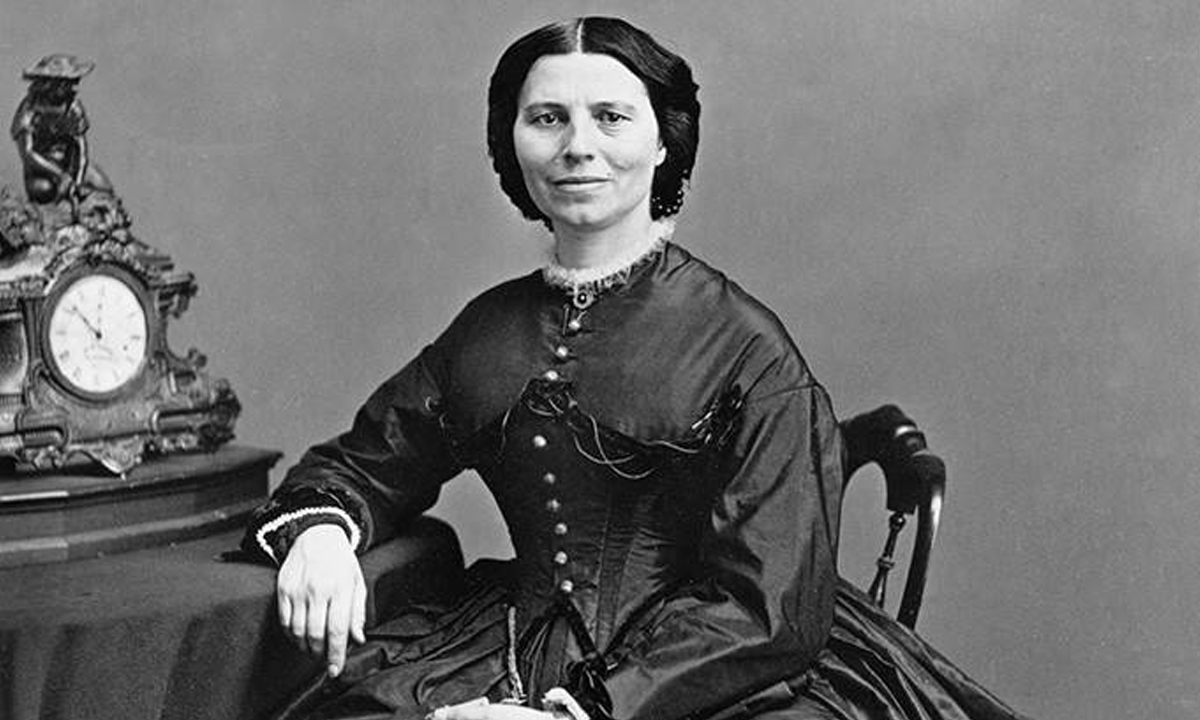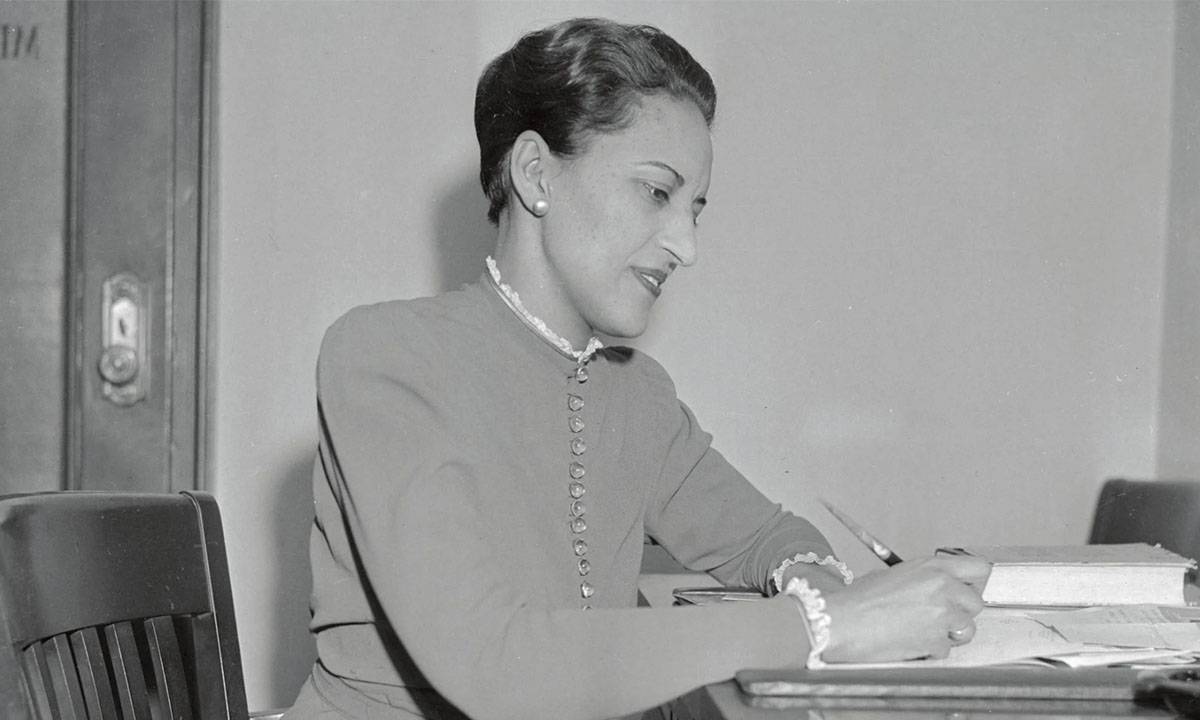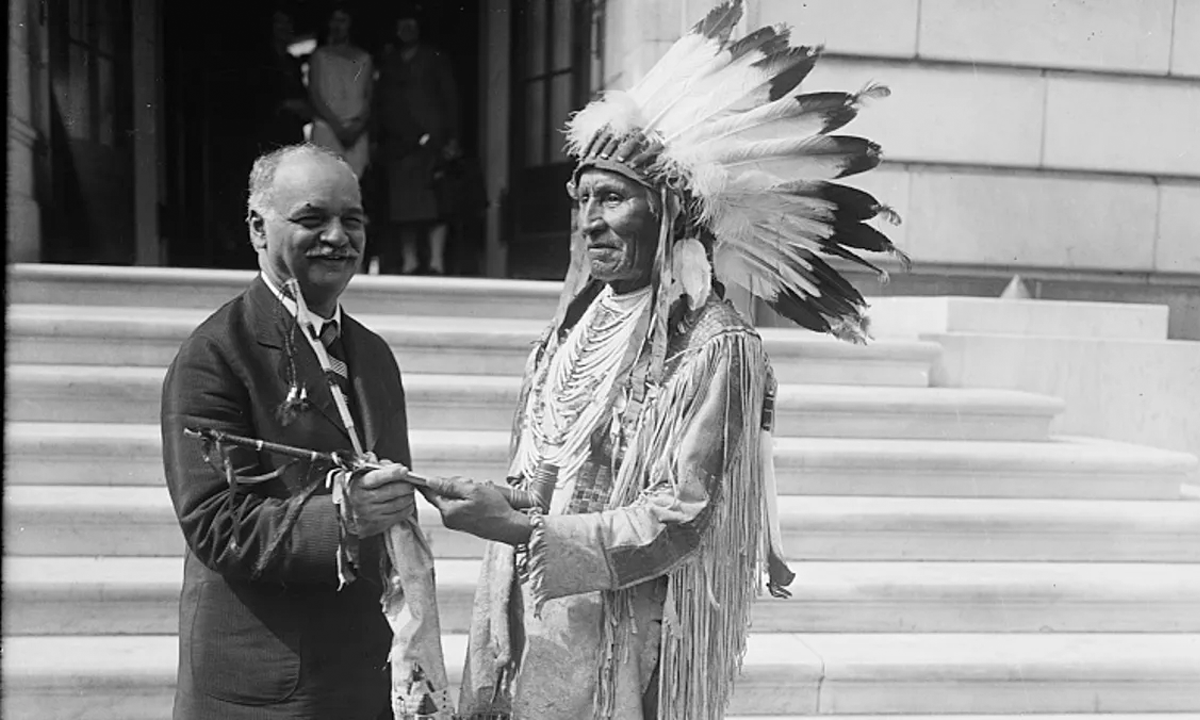This Republican in History found her life vocation at a very early age. At only ten years old, a young Clara Barton began treatment for her brother David, after he fell from the roof of a barn, resulting in a life-threatening injury. Doctors had given up on the welfare of her brother, stating that he would never be able to recover. However, with careful work and quick learning, Clara was able to nurse David to a full recovery. Barton showed a clear passion for nursing even at a young age, developing it into a career as she became the founder of the American Red Cross.
Clara Barton was born on Christmas Day, 1821. She began as a school teacher at seventeen and eventually became a clerk at the U.S. Patent Office in the nation’s capital, facing severe discrimination in both jobs because she was a woman. The Civil War began while she was working in Washington D.C. Wanting to serve her country, Barton began treating war victims arriving at a local railway station where she nursed about 40 men on her first night. She rediscovered her passion for nursing as she learned proper medical techniques and various treatment skills.
Barton would carry crates of supplies to the front lines to wounded victims on both sides of the war, establishing a large support system for donations. She was appointed by Union General Benjamin Butler as the “woman in charge” of the hospitals at the front of the Army of the James. According to legend, Barton was nearly killed when a bullet tore through the sleeve of her dress without hitting her, and killed her patient. People referred to her as the “American Nightingale” and the “Angel of the Battlefield.”
After the war, she went on speaking tours across America, attracting large audiences interested in her war stories. She used this opportunity to meet influential people such as Susan B. Anthony and Frederick Douglass, and became involved in the women’s suffrage movement and civil rights. After discovering thousands of unopened letters from families searching for the burial place of their loved ones or soldiers missing in action, she opened the Office of Missing Soldiers to assist families in their quest. She had thousands of Confederate soldiers located and properly buried from the Andersonville prison camp and as well as more than 22,000 Union soldiers.
Her doctor told her to take a break; Barton was mentally and physically exhausted from her busy lifestyle. She closed the Office of Missing Soldiers and traveled to Europe on vacation for rest and relaxation. Barton was hoping to have time off, but, while in Geneva, Switzerland, she was introduced to the Red Cross organization, originally founded to protect human life and health, to ensure respect for all human beings, and to prevent and alleviate human suffering (the red cross symbol is associated with Switzerland’s flag, but with inverted colors). As an active member in their Red Cross, Barton helped prepare military hospitals at the beginning of the Franco-Prussian War in 1870. She also assisted German authorities in supplying work to the poor in Strasbourg after the Siege of Paris.
Inspired by her experience in the wars, Barton returned to the United States with a quest to have the International Committee of the Red Cross recognized by the U.S. government. After many years, Barton succeeded during President Chester Arthur’s administration, and she became the President of the American branch of the Red Cross. In the organization, she aided with refugees and prisoners of war during the Spanish-American War and beyond.
Barton embodies the Republican spirit in her desire to help and care for all people. Her strength and resilience, especially during a time when the obstacles were great, shows the power of the individual in changing our country.




